
Banjul: The Gateway to the Gambia
Welcome to Banjul, the capital city of The Gambia, a hidden gem on the west coast of Africa. Nestled on St. Mary's Island where the Gambia River meets the Atlantic Ocean, Banjul is a small but vibrant city rich in history and culture. Its colonial architecture, bustling markets, and welcoming locals make it a unique destination for travelers seeking an authentic experience. Explore the city’s historical landmarks such as Arch 22, which offers panoramic views of the city, and the National Museum, where you can delve into The Gambia’s rich past. Don't miss Albert Market, the heart of Banjul's social and commercial life, where you can find everything from fresh produce to traditional crafts. Banjul’s proximity to natural attractions is one of its greatest draws. Just a short drive away, you can experience the stunning beaches of the Atlantic coast or take a boat trip up the Gambia River to see diverse wildlife in their natural habitats. Whether you’re a history buff, a nature enthusiast, or someone looking to unwind, Banjul offers an unforgettable travel experience.
Local tips in Banjul
- Visit Albert Market early in the morning to experience the local hustle and bustle and get the best selection of goods.
- Carry small denominations of the Gambian Dalasi as many local vendors may not have change for larger bills.
- Dress modestly, especially when visiting religious sites or rural areas, to respect local customs and traditions.
- If planning to visit the river or go on a wildlife tour, bring insect repellent to protect against mosquitoes.
- Hire a local guide for a richer understanding of the historical and cultural context of the sites you visit.
Banjul: The Gateway to the Gambia
Welcome to Banjul, the capital city of The Gambia, a hidden gem on the west coast of Africa. Nestled on St. Mary's Island where the Gambia River meets the Atlantic Ocean, Banjul is a small but vibrant city rich in history and culture. Its colonial architecture, bustling markets, and welcoming locals make it a unique destination for travelers seeking an authentic experience. Explore the city’s historical landmarks such as Arch 22, which offers panoramic views of the city, and the National Museum, where you can delve into The Gambia’s rich past. Don't miss Albert Market, the heart of Banjul's social and commercial life, where you can find everything from fresh produce to traditional crafts. Banjul’s proximity to natural attractions is one of its greatest draws. Just a short drive away, you can experience the stunning beaches of the Atlantic coast or take a boat trip up the Gambia River to see diverse wildlife in their natural habitats. Whether you’re a history buff, a nature enthusiast, or someone looking to unwind, Banjul offers an unforgettable travel experience.
When is the best time to go to Banjul?
Iconic landmarks you can’t miss
Kachikally Crocodile Pool
Discover Kachikally Crocodile Pool in Bakau, Gambia - a captivating blend of wildlife, culture, and adventure in a serene natural setting.
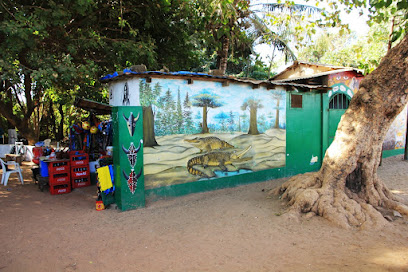
Bijilo National Park
Discover the natural wonders and stunning biodiversity of Bijilo National Park, a tropical paradise near Serrekunda, The Gambia.
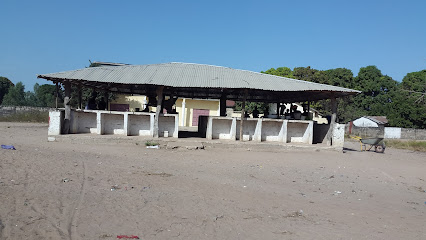
Bijilo Monkey Park
Explore the enchanting Bijilo Monkey Park in Serrekunda, Gambia, where playful monkeys and beautiful nature await your discovery.
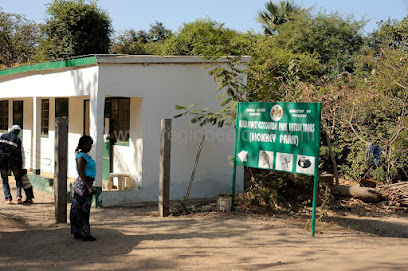
Albert Market
Explore the bustling Albert Market in Banjul, a vibrant hub for local crafts, fresh produce, and authentic Gambian street food.
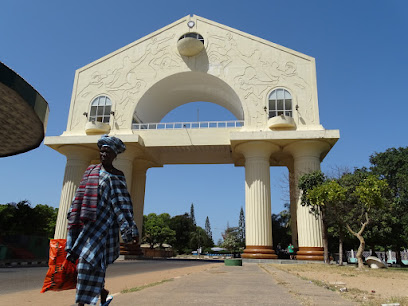
Arch 22
Discover the majestic Arch 22 in Banjul, a historical landmark offering stunning views and a glimpse into Gambia's rich cultural heritage.
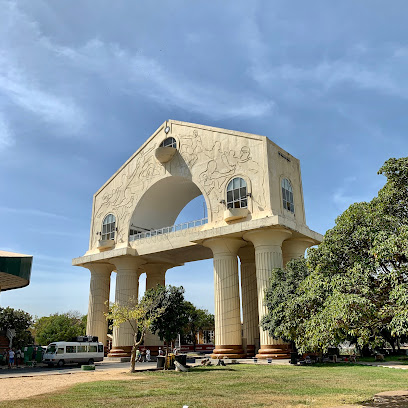
National Museum of the Gambia
Explore the National Museum of the Gambia: A Gateway to the Country's History and Culture through Engaging Exhibits and Artifacts.
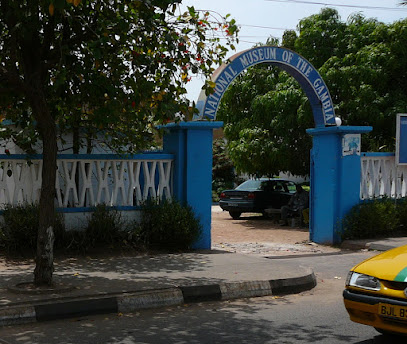
Abuko Nature Reserve
Experience the tranquility and beauty of Abuko Nature Reserve, a rich biodiversity hotspot perfect for nature lovers and outdoor adventurers in The Gambia.
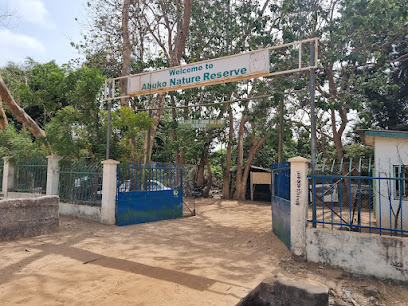
Stone Circles of Gambia
Explore the ancient mysteries of the Stone Circles of Gambia, a UNESCO World Heritage Site that unveils the rich cultural heritage of West Africa.
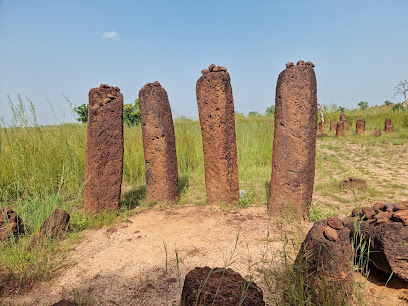
Brikama Craft Market
Discover the artistic charm of Brikama Craft Market, a cultural hub featuring handcrafted treasures and vibrant Gambian traditions.
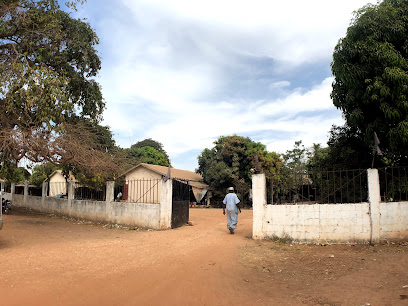
Banjul Central Mosque
Experience the architectural beauty and spiritual serenity of Banjul Central Mosque, a key landmark in The Gambia's capital.
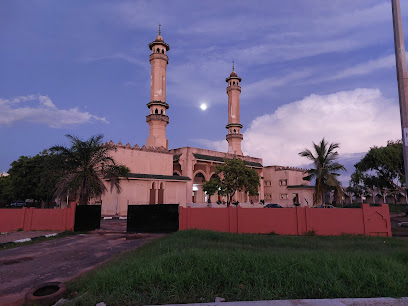
Fort Bullen
Explore the historical depths of Fort Bullen, a UNESCO World Heritage site that reveals Gambia's colonial past and offers stunning views of the surrounding landscape.
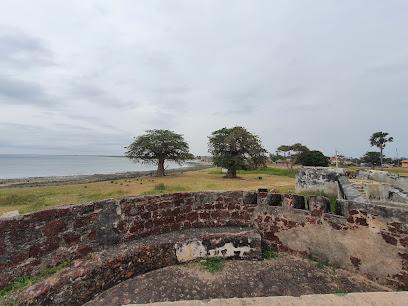
Roman Catholic Cathedral
Explore the architectural beauty and spiritual serenity of Banjul's Roman Catholic Cathedral, a testament to The Gambia's rich cultural heritage.
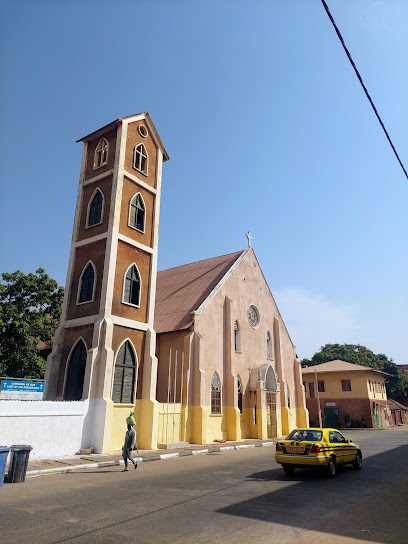
Gambia friendly tours
Experience the essence of Gambia with Gambia Friendly Tours, your trusted partner for unforgettable sightseeing adventures in this West African paradise.
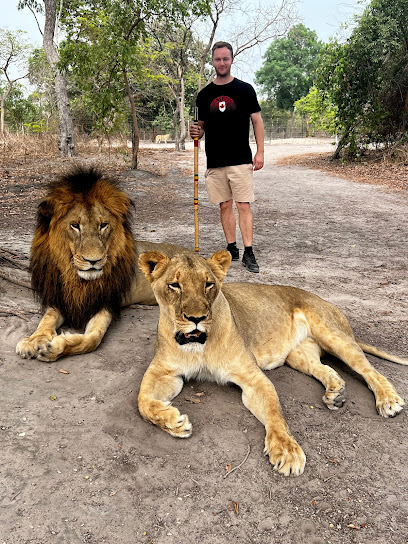
Paradise Fishing Gambia
Discover the ultimate fishing adventure at Paradise Fishing Gambia, where deep-sea thrills meet breathtaking coastal beauty.
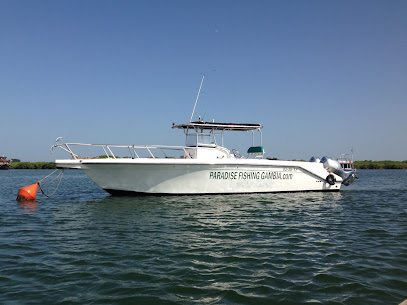
Banjul beach
Discover the serene beauty of Banjul Beach, a coastal haven in The Gambia perfect for relaxation, adventure, and cultural experiences.
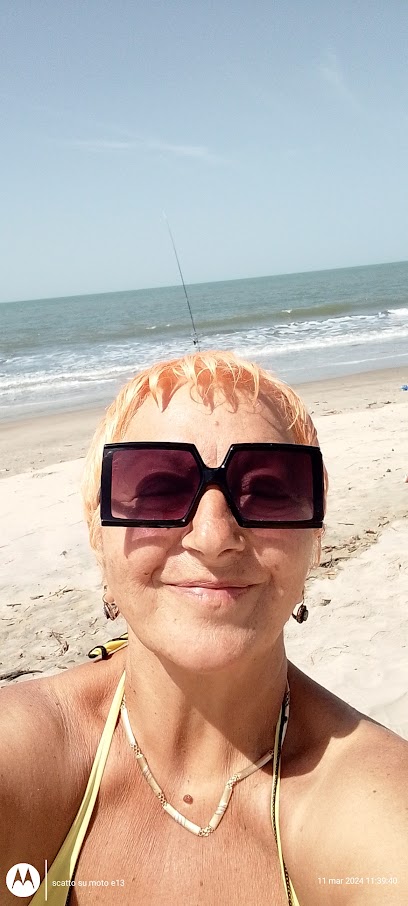
Unmissable attractions to see
Kachikally Crocodile Pool
Explore the enchanting Kachikally Crocodile Pool in Bakau, where you can witness and interact with revered crocodiles in a peaceful natural setting.
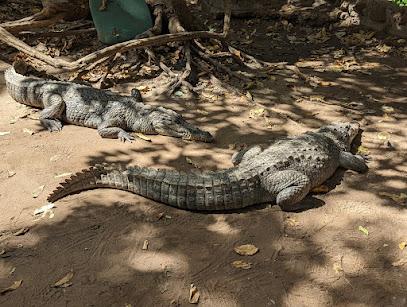
Fathala Wildlife Reserve
Explore the breathtaking Fathala Wildlife Reserve in Senegal, where adventure meets tranquility in a stunning natural setting.
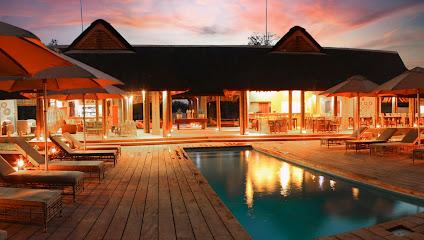
Bijilo National Park
Explore Bijilo National Park, Gambia's lush oasis of wildlife and nature, perfect for adventure seekers and nature lovers alike.
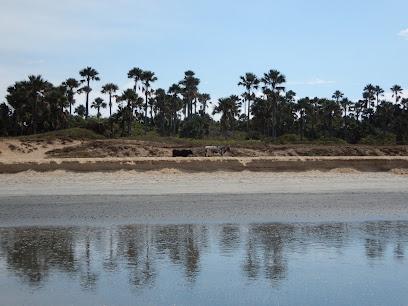
Albert Market
Experience the vibrant atmosphere and rich culture of Banjul at Albert Market, a bustling hub of local goods and Gambian life.
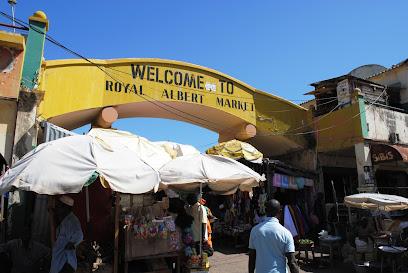
Saloum Delta National Park
Explore the breathtaking biodiversity and serene landscapes of Saloum Delta National Park, a UNESCO World Heritage site in Senegal, perfect for nature lovers and adventurers.
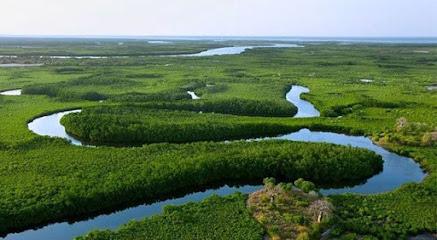
Kunta Kinteh Island
Explore Kunta Kinteh Island, a UNESCO site in The Gambia, rich in history, natural beauty, and a poignant reminder of the transatlantic slave trade.
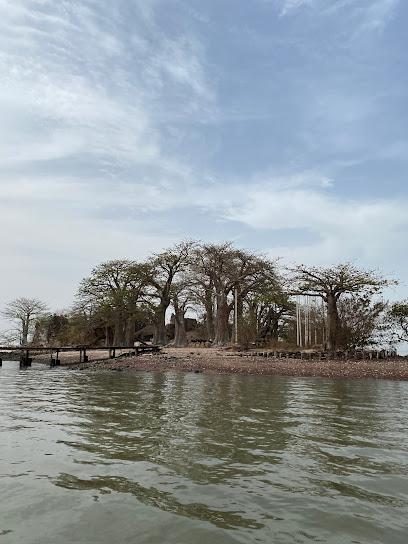
National Museum Of The Gambia
Explore the rich history and vibrant culture of Gambia at the National Museum of The Gambia, a must-visit for every traveler.
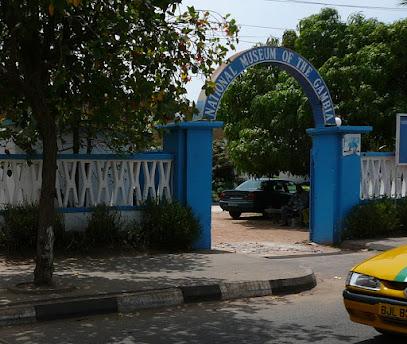
Tanji Fishing Center 🎣 bass
Discover the authentic Gambian fishing culture at Tanji Fishing Center, a vibrant market showcasing the local seafood and community spirit.
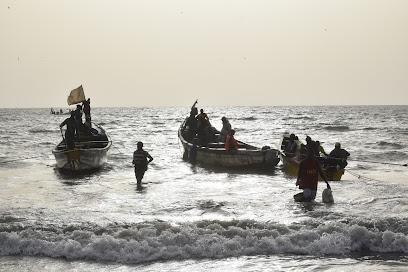
Makasutu
Discover the beauty of Makasutu, a national park in Gambia, where nature meets culture in a breathtaking landscape for every traveler.
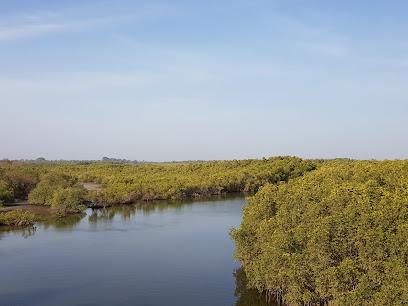
Black and White Safari
Discover the raw beauty of The Gambia with Black and White Safari, where adventure meets conservation in the heart of Serrekunda.
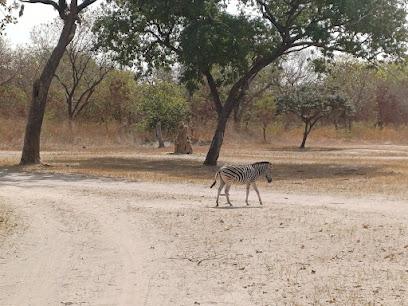
McCarthy Square
Experience the tranquility of McCarthy Square in Banjul, a lush urban park perfect for relaxation and cultural immersion.
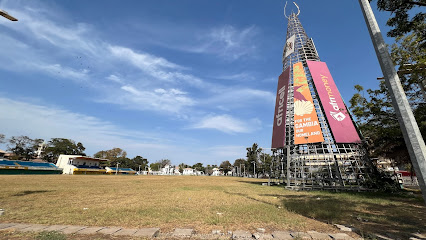
Birding Tours Gambia
Discover the rich avifauna of The Gambia at Birding Tours Gambia, a premier destination for birdwatching enthusiasts and nature lovers.

Red Dolphin Lifeguard Volunteer's Post
Explore the coastal charm and community spirit at the Red Dolphin Lifeguard Volunteer's Post in Serrekunda, Gambia – a unique tourist attraction.

DARRU SALAM GARDEN
Experience tranquility and natural beauty at Darru Salam Garden in Banjul, Gambia - a peaceful oasis for tourists and nature enthusiasts.

Tanji Bird Reserve
Discover the stunning biodiversity of Tanji Bird Reserve, a national park in The Gambia, where nature and tranquility await every traveler.
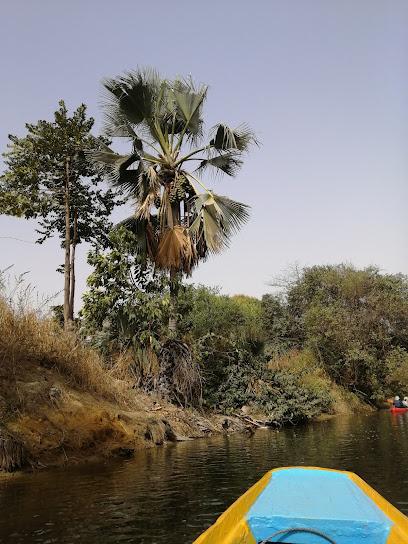
Essential places to dine
Poco Loco Beachbar Gambia
Experience vibrant beach life at Poco Loco Beachbar in Serrekunda, Gambia—where delicious food meets stunning ocean views.
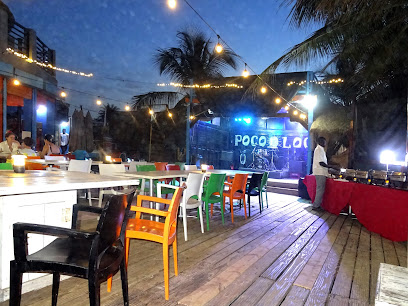
John Raymond'S Beach Bar And Restaurant
Experience authentic Gambian cuisine at John Raymond's Beach Bar and Restaurant in Serrekunda with stunning ocean views.
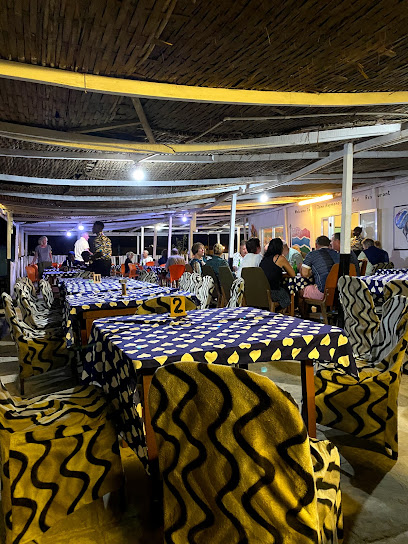
Mo2 Jamaican Bar & Restaurant Gambia (Mosiah's)
Savor authentic Jamaican cuisine at Mo2 Jamaican Bar & Restaurant in Gambia – where every meal feels like a tropical getaway.
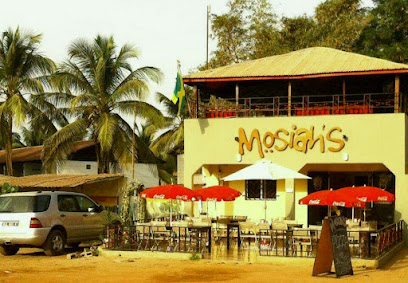
Gusto Italian Resto &bar
Experience authentic Italian flavors at Gusto Italian Resto & Bar in Serrekunda's vibrant Senegambia area – where great food meets local culture.
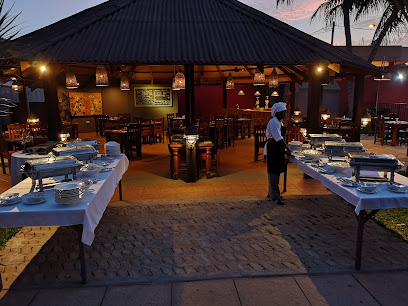
African Queen Restaurant
Discover authentic Gambian flavors at African Queen Restaurant in Serrekunda, where every dish tells a story.
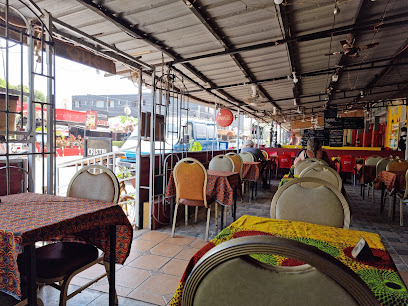
Sea Shells Bar & Restaurant
Experience delightful dining at Sea Shells Bar & Restaurant in Serrekunda - savor fresh local flavors in an inviting atmosphere.
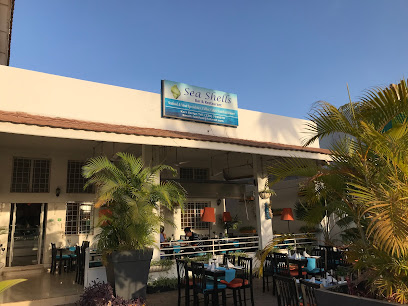
Fast Ali's
Discover the authentic flavors of Gambia at Fast Ali's in Serrekunda - where culinary tradition meets warm hospitality.
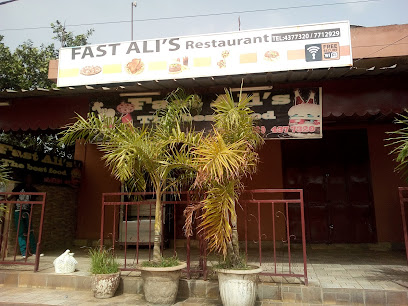
The Clay Oven
Experience authentic Gambian cuisine at The Clay Oven in Serrekunda – where tradition meets flavor in every dish.
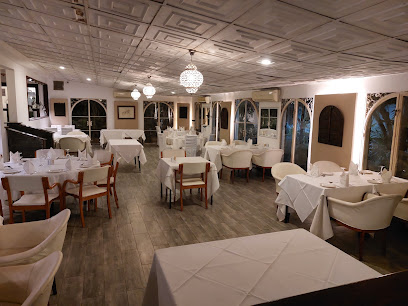
YOSH
Experience authentic Gambian flavors at YOSH, a vibrant restaurant in Bakau offering delicious dishes in a warm and welcoming atmosphere.
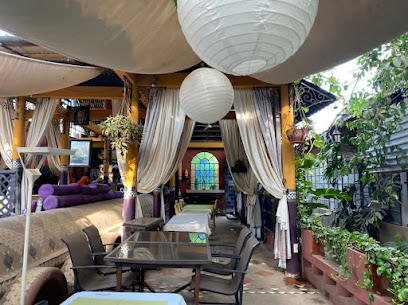
Sambas Kitchen
Experience authentic Gambian flavors at Sambas Kitchen in Serrekunda - where every dish tells a story.
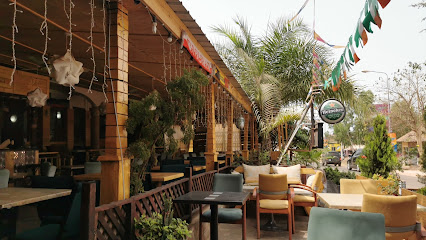
House of Flavour
Experience authentic Gambian cuisine at House of Flavour in Bakau - where family-friendly dining meets vibrant local flavors.
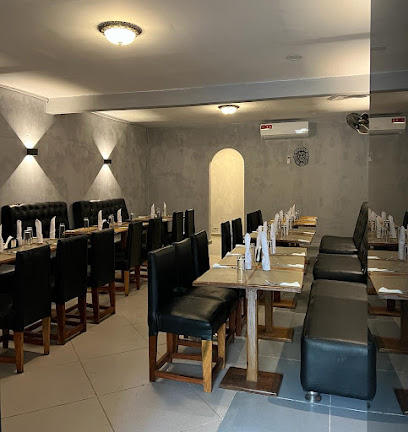
Taj India Restaurant
Experience authentic Indian flavors at Taj India Restaurant in Bakau, where every dish tells a story of tradition and culinary excellence.
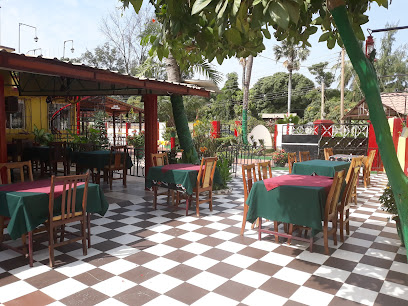
King Of Shawarma
Discover the best shawarmas in Banjul at King Of Shawarma - where taste meets tradition in every bite.
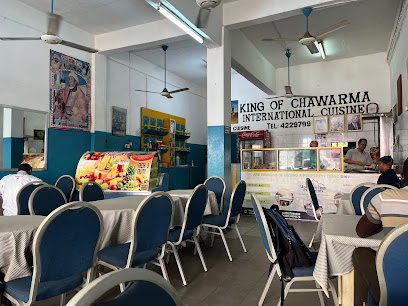
The Fajara Garden Restaurant
Experience authentic Gambian flavors at The Fajara Garden Restaurant in Serrekunda – perfect for family gatherings and memorable meals.
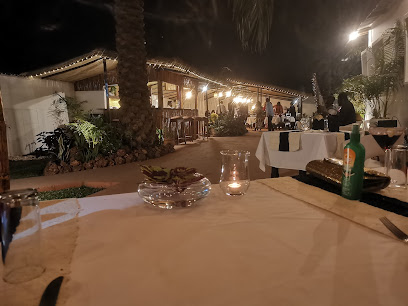
Friends Bar & Restaurant
Discover the flavors of Gambian cuisine at Friends Bar & Restaurant, where vibrant atmosphere meets culinary delight.
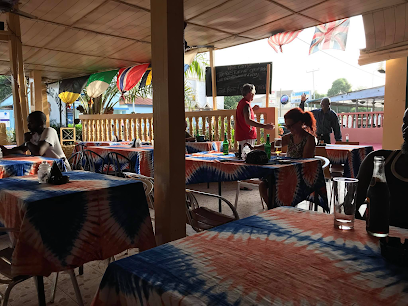
Markets, malls and hidden boutiques
NiK NaK ClothinG
Discover the vibrant styles of The Gambia at NiK NaK ClothinG, your go-to clothing store in Banjul for unique fashion finds.
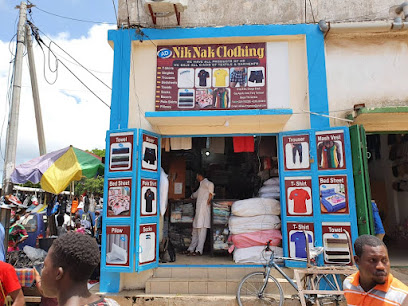
Emporium Banjul
Explore the vibrant textiles of Emporium Banjul in the heart of Banjul, where tradition and creativity intertwine for a unique shopping experience.
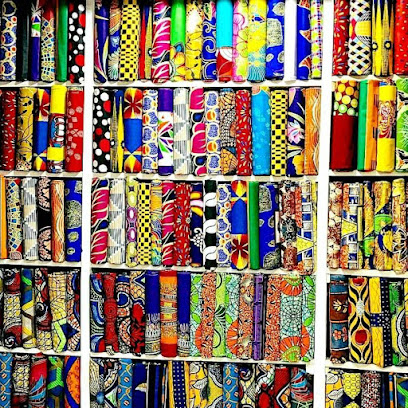
ASHOBEE STORES
Explore the vibrant world of Gambian textiles at Ashobee Stores, where tradition meets creativity in every fabric.

Matar
Discover the animated Albert Market in Banjul, a vibrant shopping destination filled with local crafts, delicious cuisine, and rich cultural experiences.
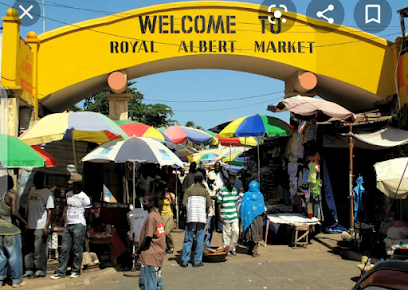
El Hella Trading Company
Explore El Hella Trading Company in Banjul for unique local crafts and souvenirs, capturing the essence of Gambian culture.

M.K Import Export
Explore the vibrant clothing styles of The Gambia at M.K Import Export, a unique shopping destination in Banjul for all fashion lovers.

Razia enterprises
Explore Razia Enterprises in Banjul for a unique shopping experience featuring local and international clothing styles.

African Queen Tailoring Shop
Explore the artistry of Gambian fashion at the African Queen Tailoring Shop in Banjul, where bespoke tailoring meets vibrant local culture.
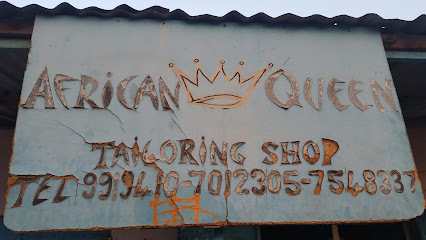
Temberland Banjul
Explore Gambian fashion at Temberland Banjul, where vibrant styles meet local artistry in a charming clothing store experience.

Racin Prestige Shop
Explore Gambian craftsmanship at Racin Prestige Shop in Banjul, a must-visit destination for unique souvenirs and local culture.
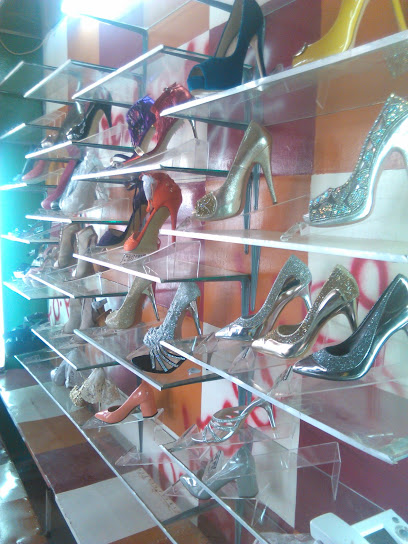
Emess Butique
Discover the vibrant shopping scene at Emess Boutique in Banjul, where local culture meets modern retail experiences.

African Fabrics
Explore the rich culture of The Gambia through vibrant textiles at African Fabrics in Banjul, a must-visit gift shop for unique souvenirs.
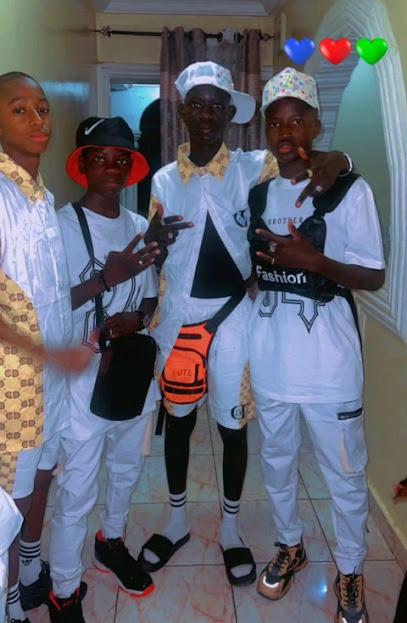
Jezner shop
Discover the vibrant and authentic souvenirs at Jezner Shop, your gateway to Gambian culture in the heart of Banjul.

CJ'S HOME IMPROVEMENT
Explore CJ's Home Improvement in Banjul for unique local crafts and essential home goods that capture the spirit of The Gambia.

BARRA TENE 10
Explore the vibrant fashion scene at Barra Tene 10 in Banjul, where contemporary style meets traditional Gambian craftsmanship.
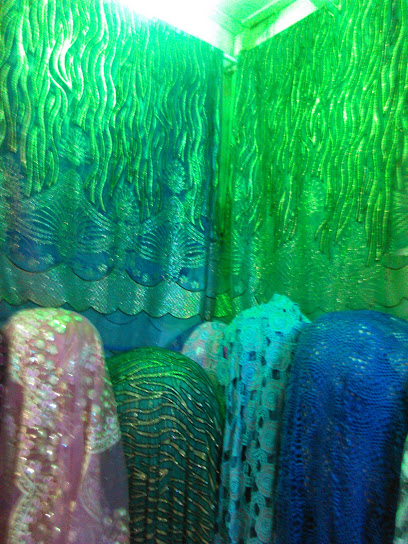
Essential bars & hidden hideouts
Solomon’s Beach Bar & Restaurant
Discover the perfect blend of relaxation and local flavors at Solomon’s Beach Bar & Restaurant in Serrekunda, Gambia.
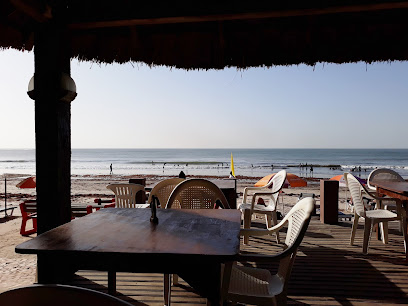
Calypso bar & restaurant
Discover the vibrant flavors of Gambia at Calypso Bar & Restaurant in Bakau, offering delightful cuisine and stunning views.
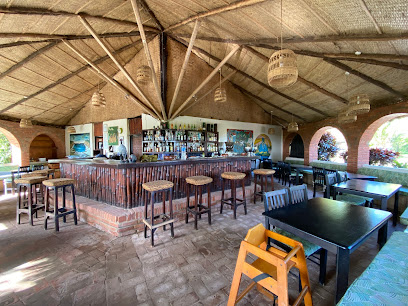
Reo's Bar and Restaurant
Experience the vibrant nightlife and delightful cuisine at Reo's Bar and Restaurant in Serrekunda, Gambia, where every night is a celebration.
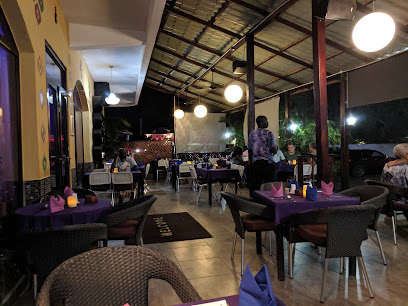
GT's Bar & Restaurant
Discover the vibrant ambiance and delicious offerings at GT's Bar & Restaurant in Serrekunda, a top spot for food and fun in The Gambia.
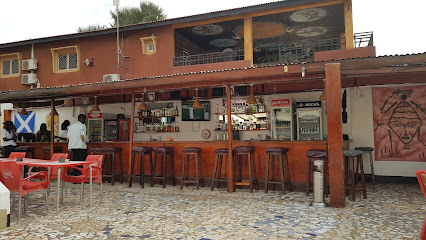
King Of Shawarma
Discover the best shawarma in Banjul at King Of Shawarma, where flavor meets tradition in a delightful dining experience.
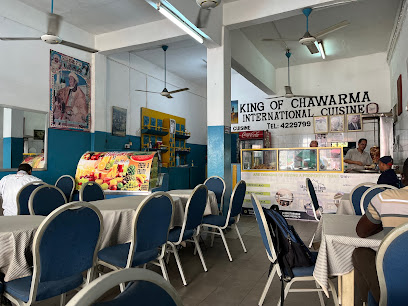
Crown Restaurant
Discover the rich flavors of Gambian cuisine at Crown Restaurant in Banjul, where delicious dishes and a warm atmosphere await every visitor.
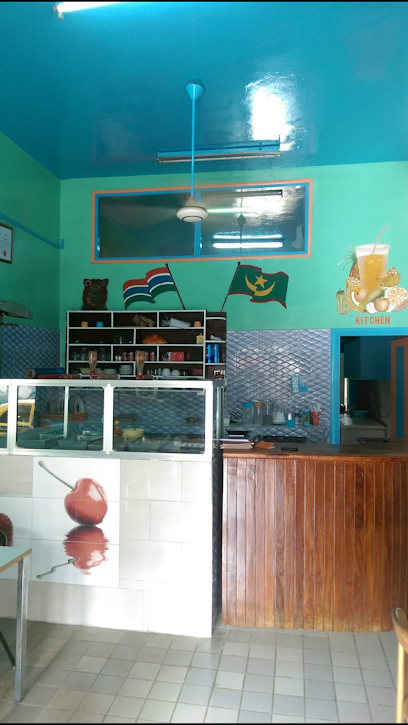
Paddies Bar & Restaurant
Experience the vibrant nightlife of Serrekunda at Paddies Bar & Restaurant, where local culture meets friendly vibes and affordable drinks.
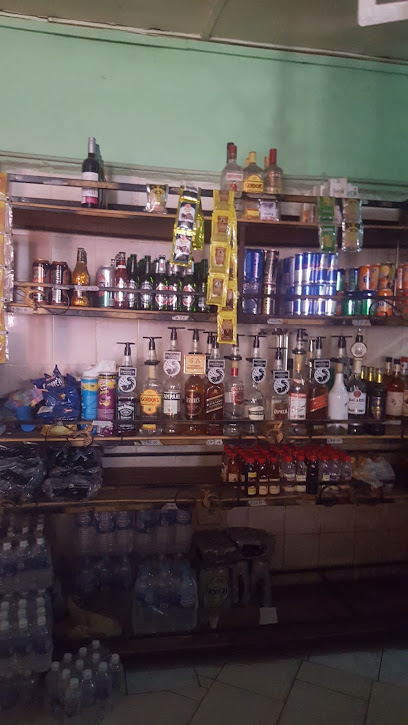
Rainbow beach bar and lodgings
Discover the vibrant atmosphere and stunning ocean views at Rainbow Beach Bar and Lodgings in Sanyang village, Banjul.
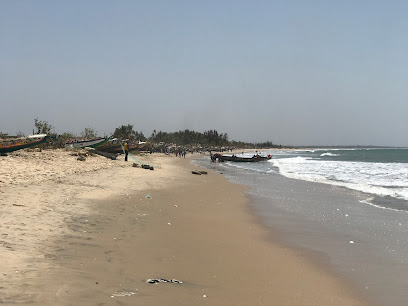
African Angling Sportfishing
Discover the thrill of fishing at African Angling Sportfishing in Banjul, where adventure meets relaxation in stunning coastal surroundings.
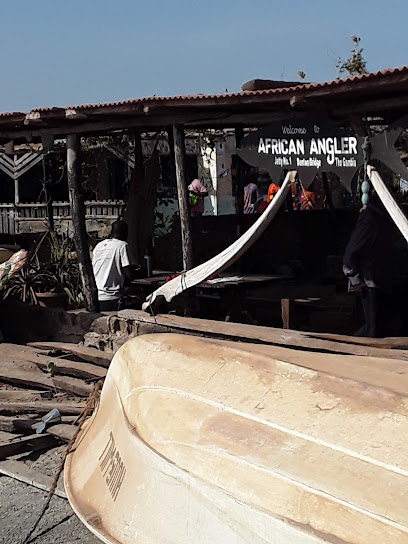
Jacaranda cafe
Experience the vibrant flavors of The Gambia at Jacaranda Cafe, a cozy bar in Serrekunda serving delicious meals and refreshing drinks.
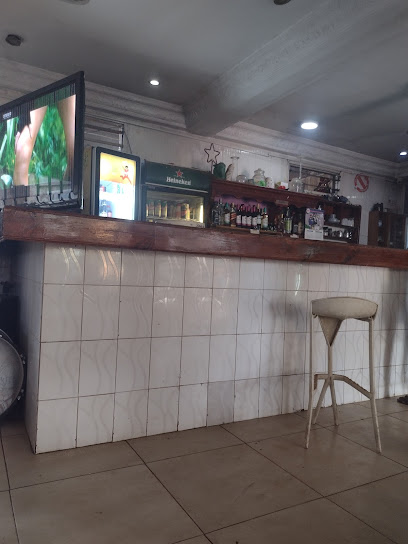
Jmix Grill & Sports Bar
Discover the vibrant atmosphere and delicious grilled dishes at Jmix Grill & Sports Bar in Serrekunda, your ultimate dining destination.
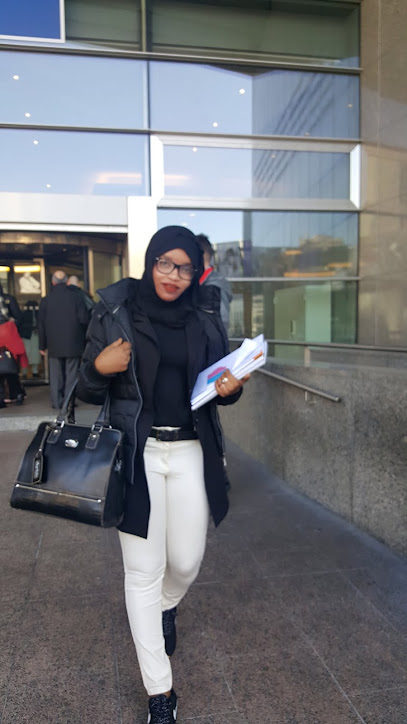
The Blue Bar
Experience the vibrant atmosphere at The Blue Bar in Banjul, where stunning waterfront views meet refreshing drinks and local delights.
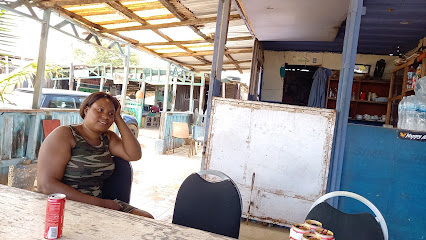
Happy place Bar and Restaurant
Experience the vibrant nightlife and authentic Gambian flavors at Happy Place Bar and Restaurant in Banjul, a must-visit for every tourist.
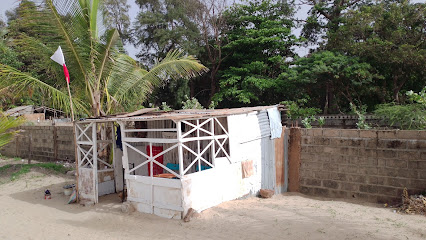
Juto.com pub
Experience the vibrant nightlife at Juto.com Pub, a lively bar in the heart of Banjul, Gambia, perfect for tourists seeking local flavors and fun.

Travel experiences inspired by this city
Explore more travel diariesLocal Phrases
-
- HelloSalamalekum
[sa-la-ma-le-kum] - GoodbyeTubaaba
[tu-ba-ba] - YesEewa
[ee-wa] - NoAlaa
[a-la] - Please/You're welcomeNanga def
[nan-ga def] - Thank youJerejef
[je-re-jef] - Excuse me/SorryNjaafun
[nja-fun] - How are you?Senegal laa?
[se-ne-gal laa] - Fine. And you?Jerejef. Amaa la?
[je-re-jef. a-maa la] - Do you speak English?Jangi wolof?
[jan-gi wo-lof] - I don't understandDinaa fahm
[di-naa fahm]
- HelloSalamalekum
-
- I'd like to see the menu, pleaseDamaa jekk menu, tangal leen
[da-maa jekk me-nu, tan-gal leen] - I don't eat meatMa laa jen la
[ma laa jen la] - Cheers!Salute!
[sa-lu-te] - I would like to pay, pleaseDamaa baax, tangal leen
[da-maa baax, tan-gal leen]
- I'd like to see the menu, pleaseDamaa jekk menu, tangal leen
-
- Help!Ndanka!
[n-dan-ka] - Go away!Sama yaram!
[sa-ma ya-ram] - Call the Police!Noppulisi!
[nop-pu-li-si] - Call a doctor!Nopdokter!
[nop-dok-ter] - I'm lostNoppa la
[nop-pa la] - I'm illNoppa la
[nop-pa la]
- Help!Ndanka!
-
- I'd like to buy...Damaa set
[da-maa set] - I'm just lookingNoppa la
[nop-pa la] - How much is it?Mangi sa?
[man-gi sa] - That's too expensiveDafa wara sa
[da-fa wa-ra sa] - Can you lower the price?Wax naa leen sa yaram
[wax naa leen sa ya-ram]
- I'd like to buy...Damaa set
-
- What time is it?Kan waqtu la?
[kan waq-tu la] - It's one o'clockBenn baax
[ben baax] - Half past (10)Xale yi (10)
[xa-le yi (10)] - MorningSuba
[su-ba] - AfternoonNgoon la
[ngo-on la] - EveningNgoonu
[ngo-o-nu] - YesterdayNeexnaa
[neex-naa] - TodayHawla
[haw-la] - TomorrowBernde
[bern-de] - 1Benn
[ben] - 2Fett
[fett] - 3Nde
[nde] - 4Nerte
[ner-te] - 5Juro
[ju-ro] - 6Weeta
[wee-ta] - 7Worom
[wo-rom] - 8Bedel
[be-del] - 9Semb
[semb] - 10Fukk
[fukk]
- What time is it?Kan waqtu la?
-
- Where's a/the...?Koo yowte...?
[koo yow-te] - What's the address?Kanu dippa?
[ka-nu dip-pa] - Can you show me (on the map)?Wax naa leen (soppu lapp)?
[wax naa leen (sop-pu lapp)] - When's the next (bus)?Kanu jerejef (bus)?
[ka-nu je-re-jef (bus)] - A ticket (to ....)Bileet (jam...)
[bi-leet (jam)]
- Where's a/the...?Koo yowte...?
History of Banjul
-
Banjul, originally known as Bathurst, was founded by the British in 1816. Captain Alexander Grant was tasked with finding a site for a settlement to curb the activities of slave traders. The chosen site, located on St. Mary’s Island at the mouth of the River Gambia, was ideal for strategic and defensive purposes. The settlement was named after the British Colonial Secretary, Henry Bathurst.
-
Banjul played a significant role in the abolition of the transatlantic slave trade. The city was established as a trading post and base for anti-slave trade operations. The British navy used the port to intercept and capture slave ships, contributing to the broader efforts to end the slave trade in the region.
-
During the colonial era, Banjul grew as a commercial and administrative center. The colonial government established key infrastructure, including government buildings, schools, and hospitals. The city became a melting pot of cultures, with influences from British colonialists, indigenous Gambians, and traders from various regions.
-
The Gambia gained independence from Britain on February 18, 1965. Post-independence, Bathurst was renamed Banjul in 1973 as part of a broader effort to shed colonial names and assert national identity. The name ‘Banjul’ is derived from the Mandinka word 'Bang julo', meaning 'fiber' or 'rope', reflecting the island's history of rope-making from local vegetation.
-
Banjul is a vibrant cultural hub, known for its rich traditions, music, and festivals. The city is home to the annual Independence Day celebrations on February 18, featuring parades, cultural performances, and community events. Another significant festival is the Roots Homecoming Festival, inspired by Alex Haley’s novel 'Roots', celebrating Gambian heritage and the African diaspora.
-
Banjul boasts several architectural landmarks that reflect its historical and cultural heritage. Notable sites include Arch 22, a towering gate commemorating the 1994 coup d'état, and the historic Albert Market, a bustling marketplace established in the 19th century. These landmarks provide a glimpse into the city's colonial past and vibrant present.
-
In recent decades, Banjul has undergone significant economic and social development. The port of Banjul remains a vital economic hub, facilitating trade and commerce. Efforts to improve infrastructure, healthcare, and education have contributed to the city's growth. Despite challenges, Banjul continues to adapt and thrive, balancing tradition with modernity.
Banjul Essentials
-
Banjul is served by Banjul International Airport (BJL), located about 24 kilometers from the city center. Direct flights are available from several major European cities, as well as regional hubs in West Africa. Upon arrival, you can take a taxi or arrange for a hotel shuttle to reach the city. Ferries are also available if you are traveling from nearby regions such as Barra.
-
In Banjul, taxis are the most common mode of transportation. They are affordable and can be easily hailed on the street or booked through your hotel. Shared taxis, known locally as 'bush taxis,' are a budget-friendly option but may be crowded. Minibuses and buses are available for traveling within the city and to surrounding areas. Car rentals are also available but be mindful of local driving conditions.
-
The official currency of The Gambia is the Gambian Dalasi (GMD). Credit cards are accepted in major hotels, restaurants, and some shops, but it is advisable to carry cash for smaller establishments. ATMs are available in Banjul, but they may not always be reliable. Exchange bureaus are also readily available for currency conversion.
-
Banjul is generally safe for tourists, but standard precautions should be taken. Avoid walking alone at night, especially in poorly lit areas. Petty crimes like pickpocketing can occur in crowded places such as markets. Areas like Serekunda and the beach areas around Kololi have reported higher instances of crimes targeting tourists. Always stay vigilant and be aware of your surroundings.
-
In case of an emergency, dial 117 for police assistance, 116 for medical emergencies, and 118 for fire services. Banjul has several hospitals and clinics where you can seek medical attention. Make sure to have travel insurance that covers medical emergencies. Pharmacies are available for minor health issues, and many staff speak English.
-
Fashion: Do dress modestly, especially when visiting religious sites. Avoid wearing overly revealing clothing. Religion: Do respect local customs and traditions. Always remove your shoes before entering a mosque. Public Transport: Do be courteous and give up your seat to elderly passengers. Don’t eat or drink on public transport. Greetings: Do greet people with a smile and a handshake. It's common to ask about someone's well-being before getting to business. Eating & Drinking: Do try local dishes and accept food offerings graciously. Don’t use your left hand to eat, as it is considered impolite.
-
To experience Banjul like a local, visit the Albert Market where you can buy fresh produce, textiles, and local crafts. Engage with locals, as they are known for their hospitality and friendliness. Don’t miss visiting Kachikally Crocodile Pool, a sacred site and popular tourist attraction. For a unique experience, take a stroll along the Banjul beach during sunset, which offers stunning views and a relaxed atmosphere.
Trending Landmark in Banjul
-
Kachikally Crocodile Pool
-
Bijilo National Park
-
Bijilo Monkey Park
-
Albert Market
-
Arch 22
-
National Museum of the Gambia
-
Abuko Nature Reserve
-
Stone Circles of Gambia
-
Brikama Craft Market
-
Banjul Central Mosque
-
Fort Bullen
-
Roman Catholic Cathedral
-
Gambia friendly tours
-
Paradise Fishing Gambia
-
Banjul beach
Nearby Cities to Banjul
-
Things To Do in Lamin
-
Things To Do in Bakau
-
Things To Do in Serrekunda
-
Things To Do in Serekunda
-
Things To Do in Brikama
-
Things To Do in Gunjur
-
Things To Do in Kaolack
-
Things To Do in Farafenni
-
Things To Do in Soma
-
Things To Do in Mbour
-
Things To Do in Thiès
-
Things To Do in Canchungo
-
Things To Do in Dakar
-
Things To Do in Janjanbureh
-
Things To Do in Bissau












